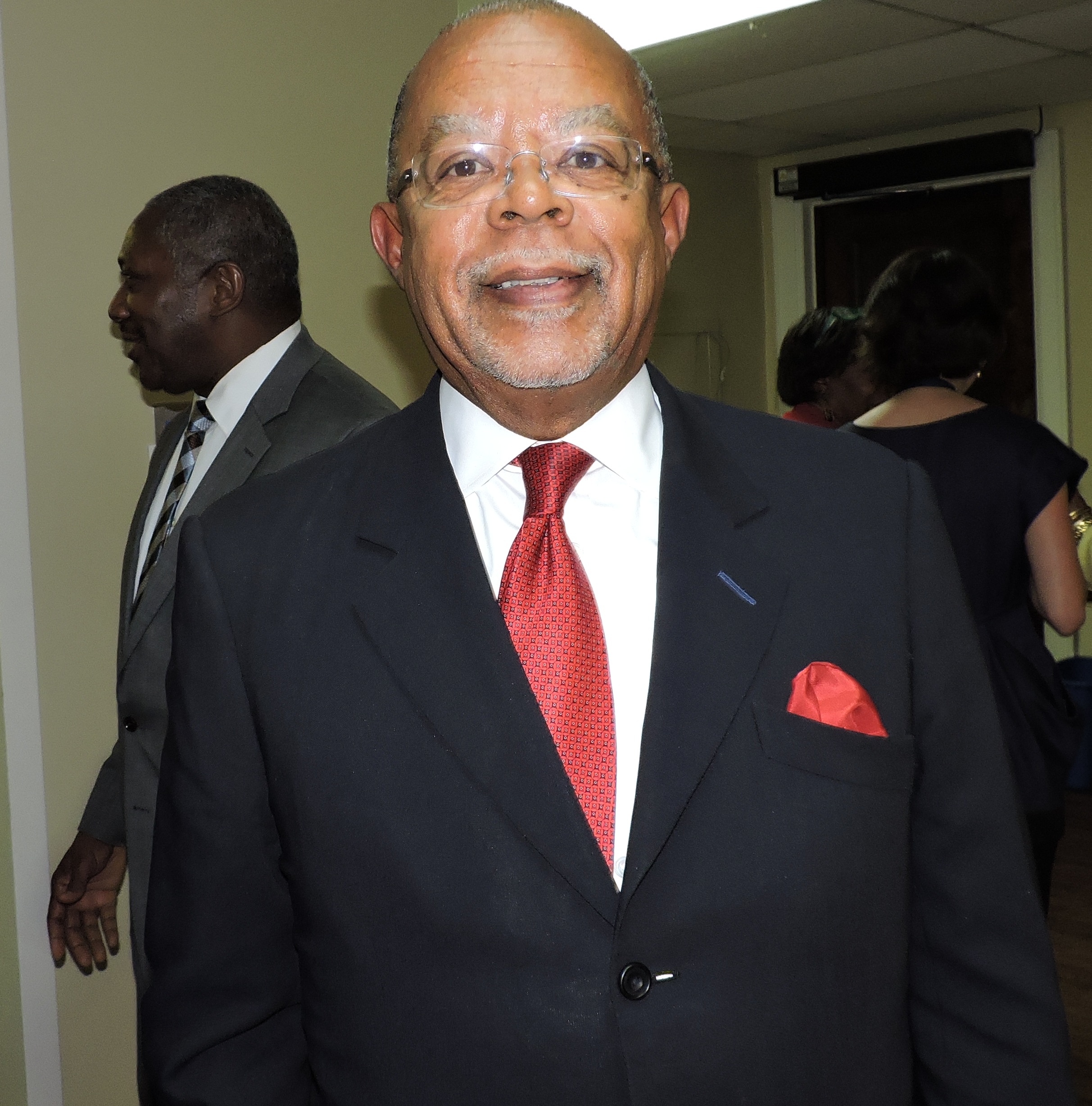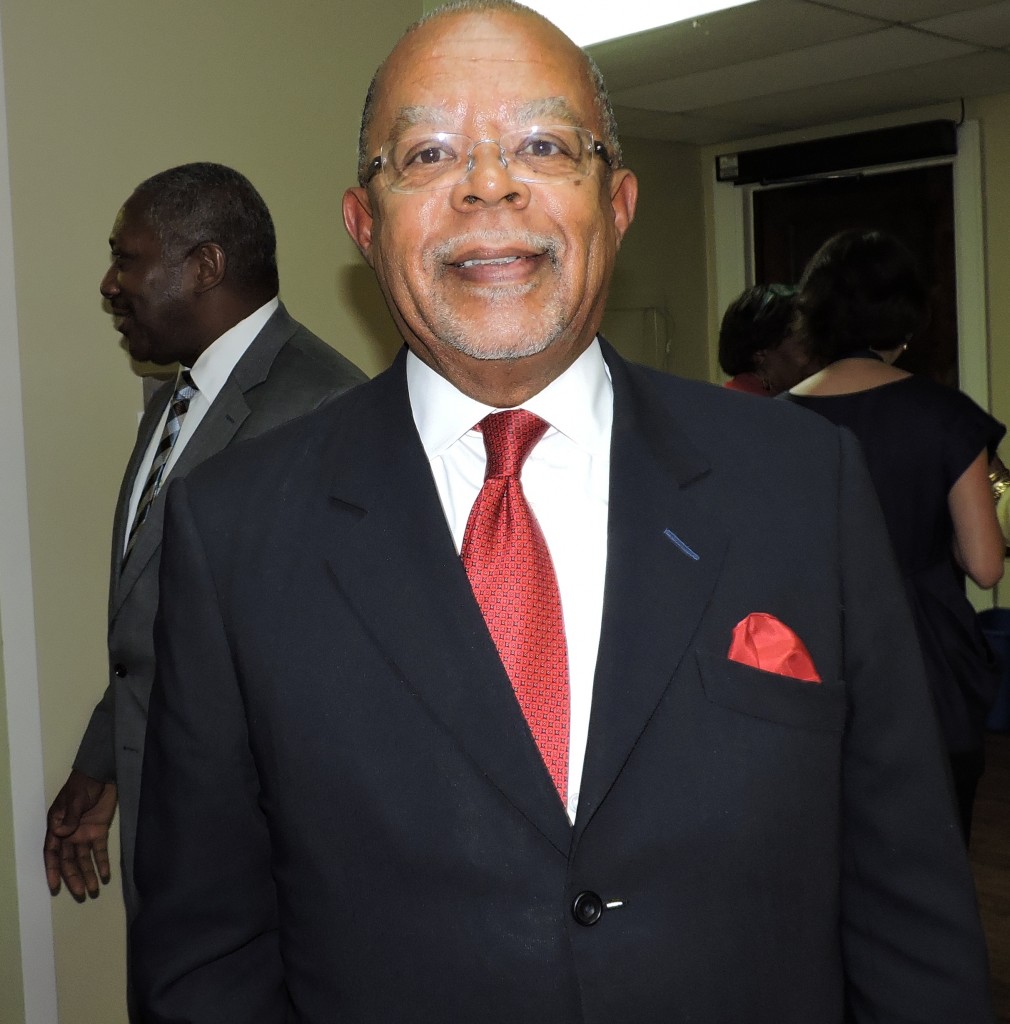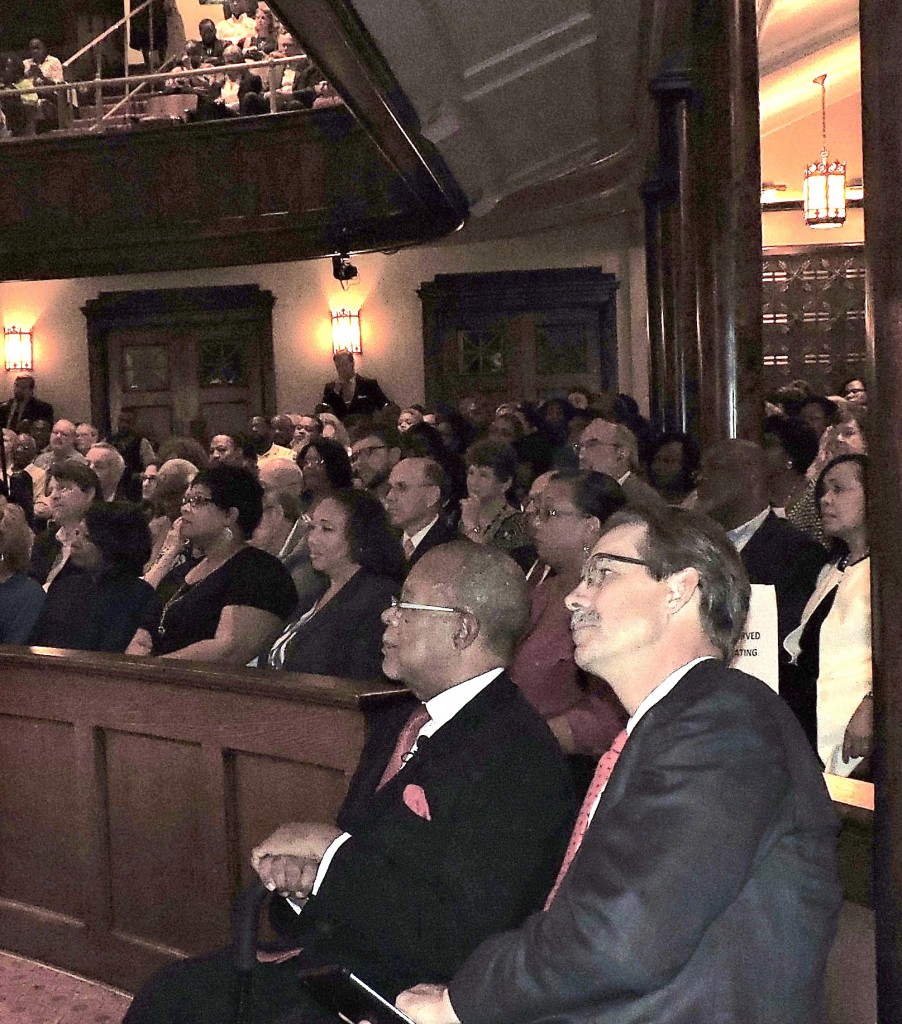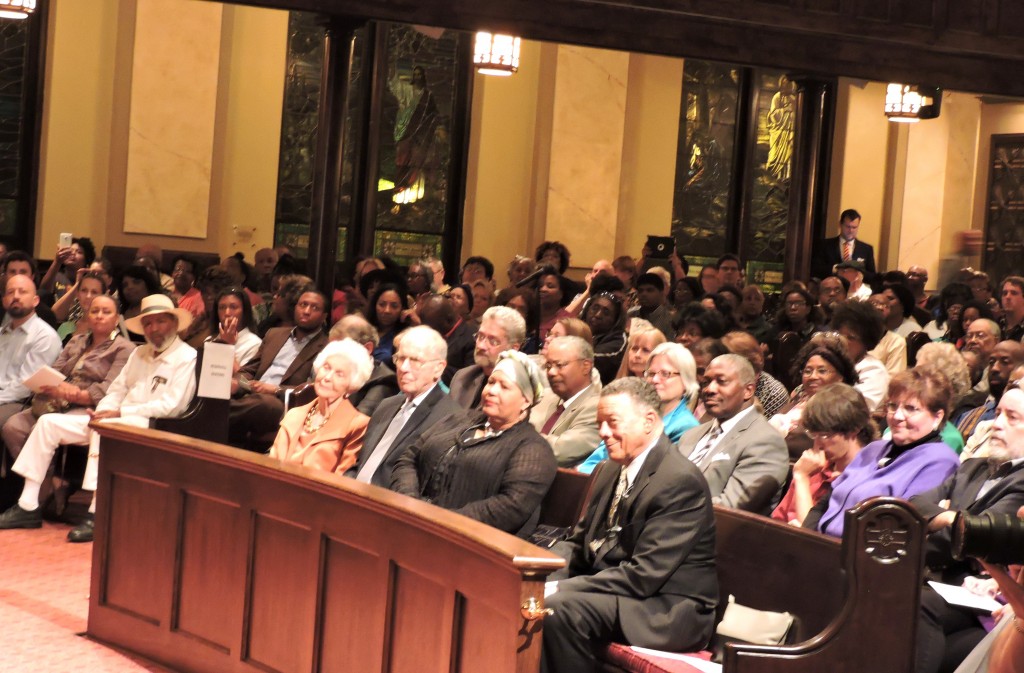
By Stephanie R. Jones
Contributing Writer

Henry Louis Gates Jr., noted cultural critic, professor and intellectual, was the speaker for this year’s Medgar Wiley Evers Lecture Series, held at Galloway United Methodist Church, 305 N. Congress St.
The lecture was more of a conversation between Gates, who is director of the Hutchins Center for African & African American Research and an Alphonse Fletcher University professor at Harvard University, and Glenn Hutchins, who is chairman of the Hutchins Center and co-founder of Silver Lake.
Gates is also known for his genealogy research; he has produced 14 documentaries relating to the African American experience. He co-edited with K. Anthony Appiah the encyclopedia Encarta Africana (1999); The Future of the Race (Knopf, 1996) co-authored with Cornel West; and author of Thirteen Ways of Looking at a Black Man (Random House, 1997).
Hutchins and Gates shared the stage as documentary clips were shown. Hutchins posed questions that Gates addressed while sharing some of his own life experiences, as the nearly full house audience listened intently.
Gates touched on topics such as desegregation, integration of Ivy League institutions, the course of affirmative action in this country and where the black community finds itself now.
Desegregation, he said, has resulted in a fragmented black community, divided by educational level and economic status. He said of himself that he was not of a background of one typically seeking to attend an Ivy League university.
“I didn’t have social status,” said Gates, who admits that affirmative action played a role in his being at Harvard. He then added that for him to become a “gatekeeper” at such a place was ironic.
“I want to see more class diversification in the black community. Used to be we all lived together – teachers, doctors, janitors.” But desegregation changed that, he said. “There are two distinct classes in the black community … we need to institute class diversity.”
Gates said the Voting Rights Act was one of the most important pieces of legislation in this country. “But we realized the problem was not just racial but economical. Economic rights are more important that political rights,” he said.
While the black middle class has grown more prosperous through the years, the lower class has stayed in the same place. “Economic opportunity is the crucial thing,” he said. “Every black person in American knows this. And everyone needs to be held accountable.”
He said in the 50s, the summit of achievement was education. “Individual responsibility is just as important as us marching and demanding things together.”
Gates, who said his own children attended private schools, was a classmate of presidential candidate Ben Carson at Harvard. He said they remain very good friends.
“He’s a genius in the operating room,” Gates said of Carson, whose book “Gifted Hands” tells the story of his career as a neurosurgeon.
“I will never pick my friends based on ideology …, but I will not vote for Ben Carson for president,” Gates said to huge applauds from the audience.
James Meredith said Gates gave an excellent definition of the problems affecting the African American community. “It was good as I’ve ever heard,” Meredith said. “He practically covered all the problems.”
But Meredith, whose presence in the audience Gates recognized as soon as he took the stage, said he didn’t hear a lot of solutions being offered.
Mrylie Evers-Williams said Gates’ talk was “magnificent and needed. It was a great night of memories and challenges from the pass from an expert humanist, author and friend.”
The Evers Lecture Series was established by the Medgar and Myrlie Evers Institute and the Mississippi Department of Archives and History. The series is supported by the W.K. Kellogg Foundation.
Stephanie R. Jones can be reached at srjones13@gmail.com or (601) 454-0372.


